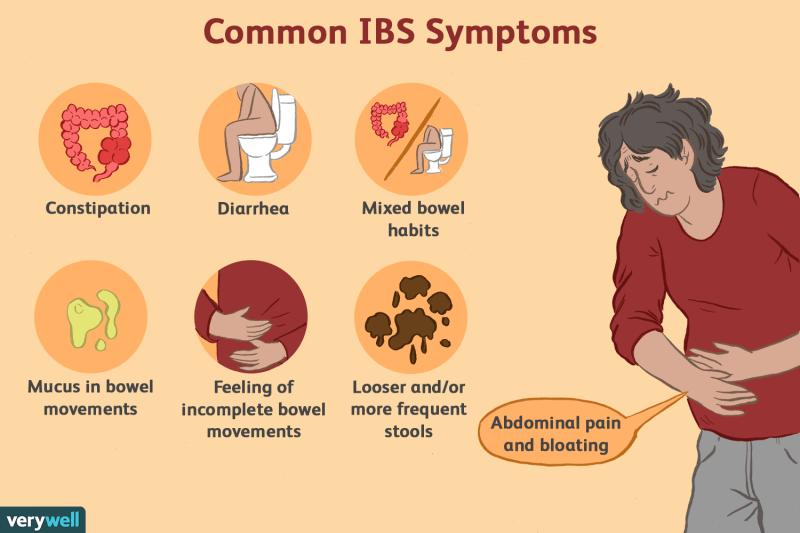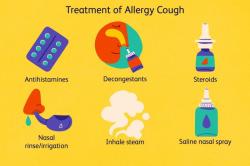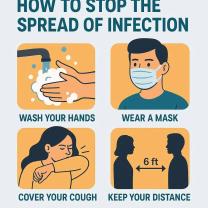Why does my stomach still hurt after the flu?
Persistent stomach pain after the flu can have various causes, and it's essential to consult with a healthcare professional for a proper diagnosis. Here are some potential reasons for lingering stomach pain after the flu, along with general remedies:
Gastrointestinal Infections: The flu is caused by influenza viruses, but it can also weaken the immune system and make individuals more susceptible to other infections, including gastrointestinal infections. Viral or bacterial infections of the digestive tract can lead to stomach pain.
Remedy: Stay hydrated and consider a bland diet (such as the BRAT diet: bananas, rice, applesauce, and toast). If symptoms persist, seek medical attention.
Gastroenteritis: Inflammation of the stomach and intestines, often referred to as stomach flu, can cause abdominal pain, nausea, and diarrhea. This condition may persist after the respiratory symptoms of the flu have resolved.
Remedy: Rest, stay hydrated, and gradually reintroduce easily digestible foods. If symptoms persist or worsen, consult a healthcare professional.
Post-Infectious IBS (Irritable Bowel Syndrome): In some cases, a viral infection like the flu can trigger changes in the gastrointestinal system, leading to symptoms resembling irritable bowel syndrome (IBS).
Remedy: Manage stress, maintain a balanced diet, and consider dietary changes under the guidance of a healthcare professional. Medications may be prescribed for symptom relief.
Dehydration: If you were dehydrated during the flu and did not fully rehydrate, it can lead to lingering stomach discomfort.
Remedy: Drink plenty of fluids, such as water, clear broths, and electrolyte drinks, to stay hydrated.
Medication Side Effects: Some antiviral medications or other medications taken during the flu recovery period may have gastrointestinal side effects.
Remedy: Consult your healthcare provider if you suspect medication side effects. They may adjust your treatment plan if necessary.
Complications: In rare cases, complications such as pancreatitis or inflammation of the gallbladder can occur.
Remedy: Seek prompt medical attention if you experience severe or persistent symptoms, as complications may require specific medical intervention.
It's crucial to communicate your symptoms and medical history to a healthcare professional for an accurate diagnosis. Persistent or worsening stomach pain should not be ignored, and timely medical evaluation is essential for proper treatment and management.
Residual effects and flu's impact on the digestive system:
The flu, primarily a respiratory illness, can indeed leave behind some digestive issues. Here's how:
1. Residual effects causing discomfort:
- Inflammation: The flu virus triggers inflammation throughout the body, including the gut. This lingering inflammation can irritate the stomach lining and intestines, leading to discomfort, cramps, nausea, and even diarrhea.
- Microbiome disruption: The flu can disrupt the delicate balance of gut bacteria (microbiome). This can lead to digestive issues like bloating, gas, and constipation as the good bacteria struggle to compete with potentially harmful ones.
- Nerve damage: In severe cases, the flu virus can damage nerves in the gut, affecting digestion and motility. This can cause problems like delayed emptying of the stomach, further contributing to discomfort.
2. Flu's impact on the GI tract and prolonged discomfort:
- Direct attack: The flu virus can directly infect and damage cells in the gut lining. This disrupts the normal functioning of the digestive system, leading to nausea, vomiting, and diarrhea.
- Dehydration: Flu often causes fever, sweating, and vomiting, leading to dehydration. This can worsen digestive problems as the body struggles to move food through the intestines.
- Medication side effects: Some flu medications, like pain relievers, can irritate the stomach lining and contribute to discomfort.
The combination of these factors can lead to prolonged stomach issues even after the flu itself has subsided. It can take several days or even weeks for the gut to fully recover and for the microbiome to rebalance.
Tips for managing post-flu digestive discomfort:
- Stay hydrated: Drink plenty of fluids, especially electrolytes, to combat dehydration.
- Eat bland foods: Opt for easily digestible meals like rice, crackers, and toast. Avoid greasy, spicy, or acidic foods that can irritate the gut.
- Probiotics: Consider taking probiotic supplements to help restore the gut microbiome balance.
- Rest: Give your body time to heal and focus on getting enough sleep.
- See a doctor: If discomfort persists for more than a week, consult a doctor to rule out other underlying conditions.
Remember, everyone's body reacts differently, and the duration of digestive issues can vary. Be patient, listen to your body, and don't hesitate to seek medical advice if needed.













